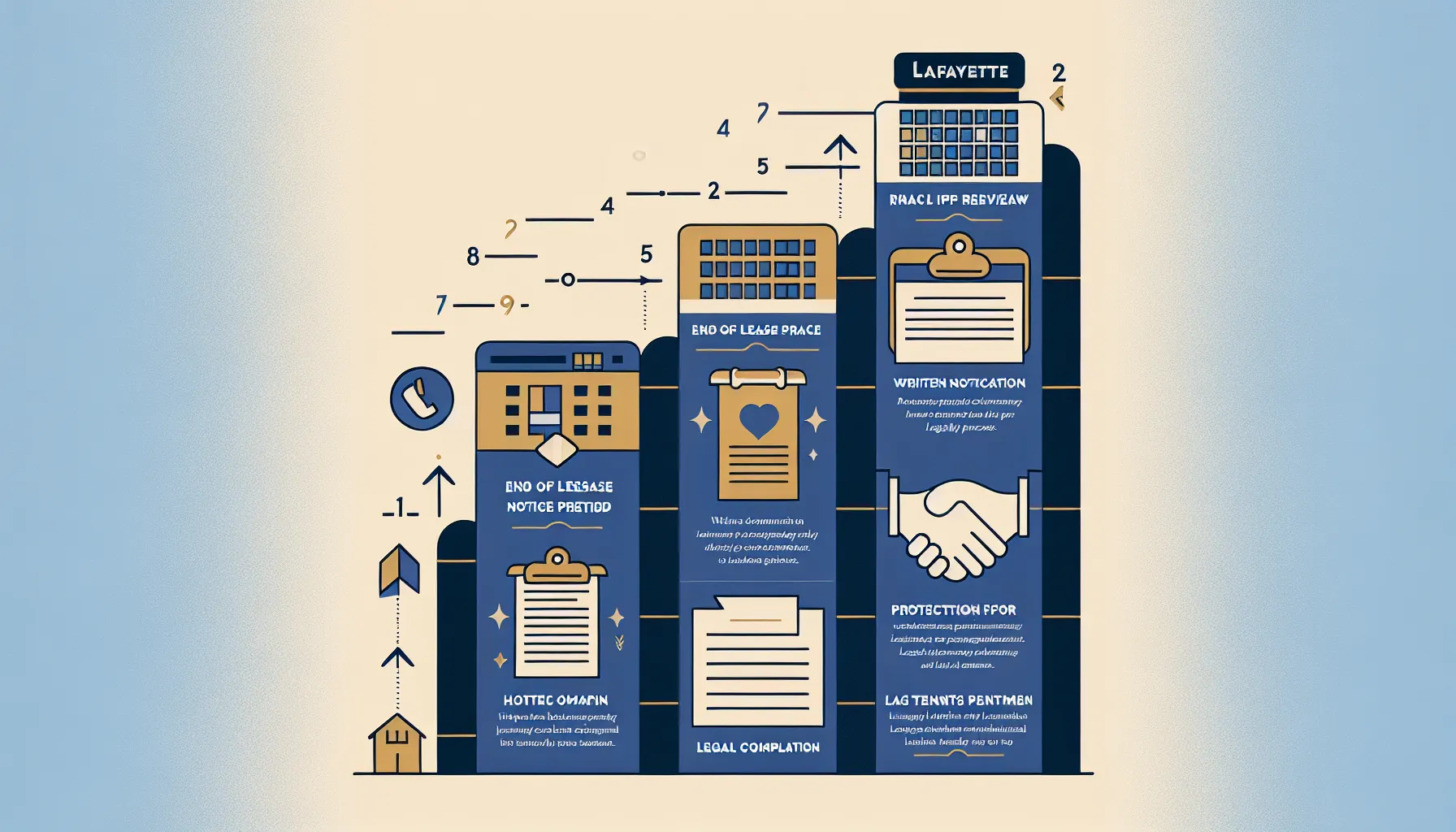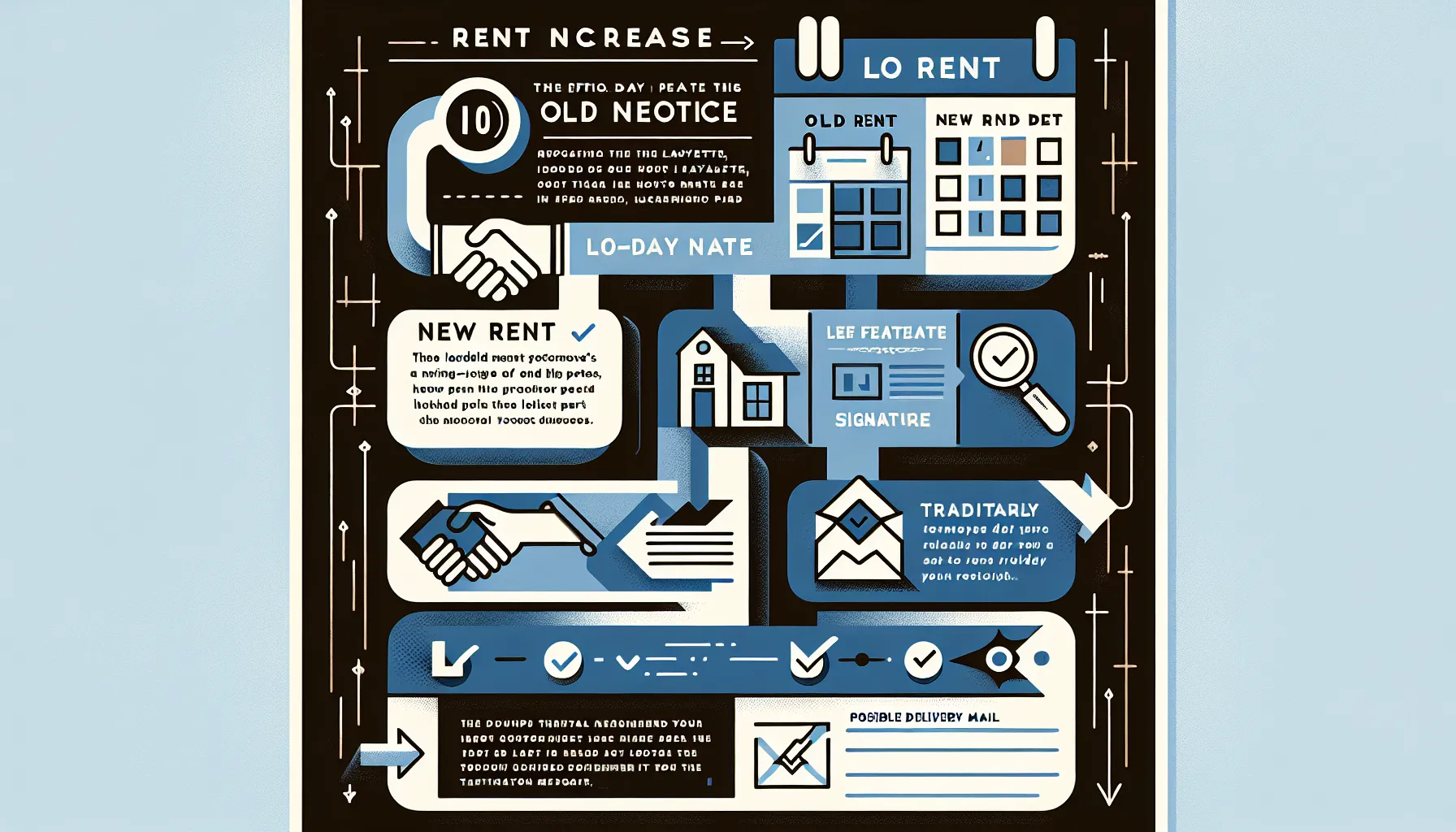Thinking about a rent increase in Lafayette? Or maybe you just received notice about your rent going up and you’re feeling uncertain or even frustrated. Let’s face it, these situations can bring up a lot of questions. Am I being treated fairly? What’s allowed by law? How much notice should I expect? I’ve worked through these concerns myself and have helped many others understand their rights and responsibilities. By simplifying what can sometimes feel overwhelming, I hope to give you clarity and confidence, whether you’re a landlord or a tenant. Ready to get your questions answered and feel better prepared for what comes next? Let’s walk through everything you need to know about the Lafayette rent increase process.
Key Takeaways
- The Lafayette rent increase process requires landlords to provide at least a 10-day written notice for month-to-month rentals, with formal documentation being essential.
- Lafayette does not have strict rent control, but landlords cannot increase rent during a fixed-term lease unless a specific clause allows it.
- Landlords must ensure rent increases are not retaliatory or discriminatory, aligning with Lafayette and Louisiana laws.
- Tenants have the right to review rent increase notices, negotiate, or move out if the terms are unacceptable.
- Clear communication, documented processes, and awareness of rights and local resources are key to managing Lafayette rent increases effectively.
Overview of Rent Increase Regulations in Lafayette

Every city has its rules when it comes to rent increases, and Lafayette is no exception. Local guidelines fall in line with Louisiana state laws, which tend to favor clear communication and fair dealings over heavy regulation. While Lafayette doesn’t enforce strict rent control, there are specific procedures both landlords and tenants must follow.
In practical terms, this means landlords generally have more freedom to set rent, but only at defined times, and always with proper notice. At the same time, tenants are given protections that help prevent sudden, unreasonable changes. Are you curious about these protections or how rent changes are communicated? Let’s look closer at the underlying legal framework.
Legal Requirements for Raising Rent

Raising rent in Lafayette isn’t as simple as sending out a letter. State law mandates that any increase must comply with the original lease terms and the required notice period. For most residential properties, a landlord can only alter rent at the end of a fixed-term lease or when a month-to-month agreement is in place.
If the lease is still active, the amount can’t be changed mid-term unless a special clause allows it, and even then, the exact steps (including written notification) must be followed. The main principle? Notice and documentation at every stage. For instance, verbal agreements won’t cut it here: everything needs to be in writing.
If you’re a landlord, this protects you from future disputes. And if you’re a tenant, it gives you time to plan ahead.
Notice Periods and Documentation

One major concern I hear from both sides is: How much warning do I get, or need to give, before a rent change? For month-to-month tenancies in Lafayette, the law typically requires at least a 10-day written notice before the end of the rental period. Many industry professionals recommend 30 days to keep things clear and amicable, even though it’s not strictly required by local statute. Fixed-term leases often require renegotiation at renewal, with rent increases detailed in the new contract.
Documentation is what keeps everyone accountable. A formal notice should include the current rent, the proposed new amount, the effective date, and a signature. Email can sometimes work, but a physical letter, delivered personally or by certified mail, remains the gold standard for serious matters like this.
Have you ever received (or given) a rent increase notice and felt confused? Taking a few minutes to double-check the details on that paperwork can save you a lot of stress.
Limitations and Restrictions on Rent Increases

Unlike some larger cities, Lafayette doesn’t have a rent control ordinance that caps increases at a set percentage. In theory, this could allow a landlord to propose large increases. But most owners stick to market rates. Excessive hikes can make finding qualified tenants much harder, and properties sitting empty don’t benefit anyone.
But, there are still important limits:
- No increase can be retaliatory. Raising the rent because a tenant complained about repairs isn’t allowed.
- Discrimination is absolutely prohibited. It’s illegal to raise the rent on some tenants but not others based on race, gender, family status, or other protected categories.
Need help figuring out if a proposed increase is reasonable? Comparing local rental listings or consulting local housing resources might help you make sense of current market conditions.
Steps for Landlords to Follow When Increasing Rent

Here’s a straightforward checklist for landlords thinking about raising rent in Lafayette:
- Review the Lease: Double-check terms and renewal dates. Are you allowed to change the rent now?
- Research Market Rates: What are similar properties charging? This keeps your offer competitive, and fair.
- Draft a Written Notice: Clearly state the old rent, the new amount, the date of change, and your contact info.
- Deliver Notice Properly: Certified mail, email with acknowledgment, or in-person delivery all work, just get a receipt or signature.
- Allow Time for the Tenant to Respond: Legally, at least 10 days for month-to-month, but more notice is often appreciated.
- Document Everything: Keep a copy of notice and any replies for your records.
Sticking to this approach not only helps you avoid misunderstandings, but it also builds long-term trust. I always tell fellow property owners: a transparent process leads to smoother relationships.
Tenant Rights and Options During a Rent Increase
If you’ve just gotten a rent increase notice, it can be stressful. But you have options. First, check that the notice was delivered on time and in writing. If anything looks off, you can ask for clarification. Don’t be shy, it’s your right.
If the increase fits within local norms and the notice is proper, your next steps are to accept, negotiate, or move out at the end of your current rental period. Sometimes, tenants are surprised to find their landlord open to a conversation about the size or timing of the increase, particularly if you’re a good renter or facing special circumstances.
Hearing from both landlords and tenants alike, I know how important it is for everyone to feel respected throughout the process. Remember: no one can make you accept new terms without proper notice, and retaliatory actions are not legal. Want to protect your deposit or reference? Plan ahead and keep all communication in writing.
Dispute Resolution and Resources
Sometimes, disagreements crop up. Maybe a tenant feels the increase is excessive, or a landlord believes the tenant hasn’t responded appropriately. What then? Start with communication. Reach out directly, express concerns, and see if an understanding can be reached informally.
If that doesn’t work, mediation is the next logical step. There are local housing advocates and legal aid organizations in Lafayette that can step in to help both sides reach a resolution. Taking disputes to court is an option, but it tends to be the last resort because of the time and cost involved.
Resources like the Louisiana Fair Housing Action Center, city housing offices, and tenant advocacy groups can all offer guidance. Don’t hesitate to use these services if you’re feeling stuck or unsure. I’ve seen many cases where a simple phone call brings much-needed peace of mind.
Conclusion
Understanding the Lafayette rent increase process isn’t just about knowing the rules, it’s about feeling confident and prepared. Whether you’re facing a change as a landlord or a tenant, a little knowledge goes a long way. Remember, clear communication and fair play are your best assets. Take the time to review every notice, ask questions, and seek expert input if the situation feels complicated.
You deserve transparency, respect, and peace of mind in your housing decisions. If you ever feel overwhelmed, reach out for help or guidance, local organizations and professionals are available to support you through each step.
Frequently Asked Questions About the Lafayette Rent Increase Process
What is the process for a rent increase in Lafayette, LA?
The Lafayette rent increase process requires landlords to provide written notice before raising rent, typically at the end of a lease or during a month-to-month agreement. Notice must outline the new amount, effective date, and be delivered properly, ensuring both parties understand the changes.
How much notice is required for a rent increase in Lafayette?
For most Lafayette month-to-month tenancies, landlords must provide at least a 10-day written notice prior to the end of the rental period. While 10 days is the minimum, many professionals recommend 30 days to give tenants adequate time to respond and plan.
Can a landlord increase rent in Lafayette during a fixed-term lease?
No, a landlord generally cannot increase rent during an active fixed-term lease unless the lease specifically allows for it. Rent changes usually occur at lease renewal, with new terms outlined in the renewal agreement and proper notice given to the tenant.
Are there any restrictions or limits on how much rent can be increased in Lafayette?
Lafayette has no specific rent control laws, so there’s no limit on how much rent can be raised. However, rent increases cannot be retaliatory or discriminatory, and most landlords stick to current market rates to avoid vacancies and disputes.
What should I do if I think a rent increase is unreasonable in Lafayette?
If you believe a rent increase is excessive, first compare local rental rates for similar properties. Open communication with your landlord is recommended. If needed, contact local housing resources or legal aid for advice or mediation services to help resolve disputes.
How do I respond to a rent increase notice as a tenant?
After receiving a rent increase notice in Lafayette, review the details carefully. You can accept, negotiate the terms, or choose to move out at the end of your lease period. Always communicate in writing and confirm that the notice met legal requirements.
